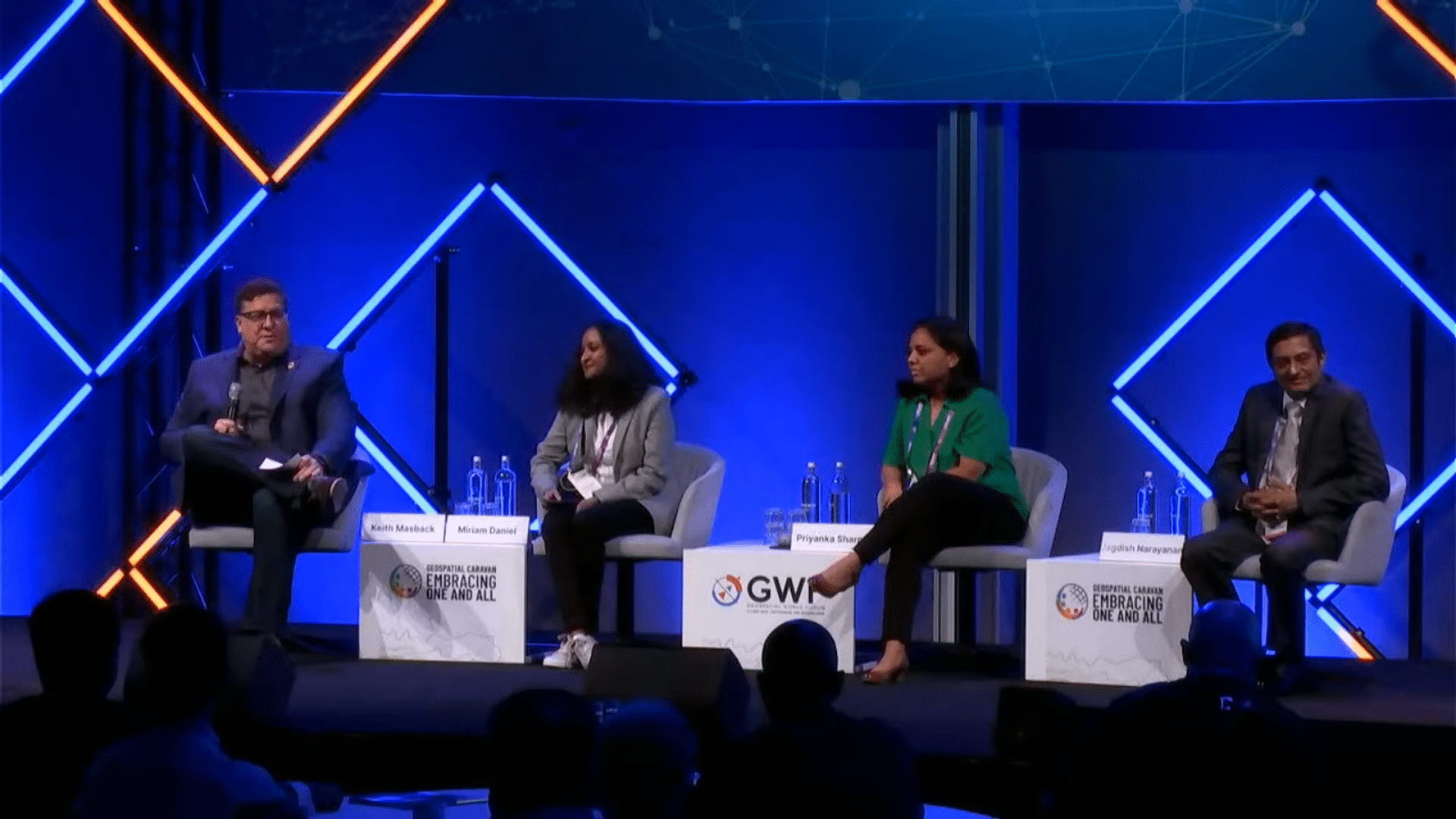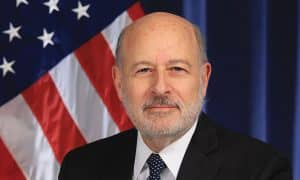Geolocation has been revolutionizing the way businesses market and engage with their customers. Location-based digital services such as ride-hailing, food delivery, online retail, etc. requires convergence of personalization and location data in order to create more tailored and convenient services for consumers.
This translates into substantial improvements in customer engagement and experience. The Plenary Panel moderated by Keith Masback, Advisor, Geospatial World, USA discussed how geo-location technology empowers both businesses and consumers by creating more efficient and engaging interactions.
Mariam Daniel, VP & GM, Google Maps for Consumers, Google said, “High resolution imagery and AI is making mapping more immersive. The world is constantly changing and there is an increasing need to keep up with the changing world in real-time that is where constant updating of maps is the demand of user.
She added that there is an emerging trend in the urban centres of the world that is they are moving towards sustainable ways of travel and making sustainable mobility, their easy choice in day-to-day basis.
Another trend is that there is a direct connections between users, businesses and industries. All of the data are interconnected, from consumers using geospatial data and mapping to businesses and enterprises to connecting them with cities and governance and enabling a global impact, a positive environmental impact.
Jagdish Narayanan, CIO, Reliance Jio Payments Bank, India said, “Location and geospatial data provides fundamental information in order to be able to provide services to the customers at the right place, at the right time in the right manner, and in a secure manner.”
He added that the great thing about digital expansion is that it makes huge levels of inclusion but also frauds can also explore this at the same speed, this is where geospatial data can be very useful in identifying and preventing frauds.
Priyanka Sharma, Strategic Lead, Manager – Location Intelligence, Booking.com, The Netherlands, said, “The customers now desire customized services. We provide tailored recommendations to each user segment, geo is more than just providing hotel options.”
Trust between consumer and service providers
Data is binding user, businesses and governments to work in a synchronized manner to provide everyone the opportunity to grow in the same space, through better services, better connected cities, and enhanced experiences, which is why trust between the entities is important.
Daniel added that, “It is a mutual process, where we share data and insight with the government to help them in urban planning, and then they share their definitive data with us, to make sure that we increase the accuracy and freshness of the data for the consumers through our maps.
When the user is using the map data, that means they have put in their trust in the service, and trust is hard earned, once you lose it, it is difficult to gain it back, which is why we make sure we protect user data, their privacy and provide accurate data, in order to keep their trust.”
“At Booking.com, we get data in the form of pictures, reviews and experiences about places from users, which we use for machine learning models, validation and moderation to generate different product verticals but at the same time we make sure to protect that piece of information and value customer’s privacy,” added Sharma.
Narayanan said, “The more data we get not just about locations, but about people, their culture, region etc., the services that can be offered to those customers are far more personalized, humanized and not just general service offerings. Thus there is always a need to gather more data to understand the needs of the customers at any particular location and their culture.”
ALSO READ: Geospatial Knowledge Indispensable for Global Economy









